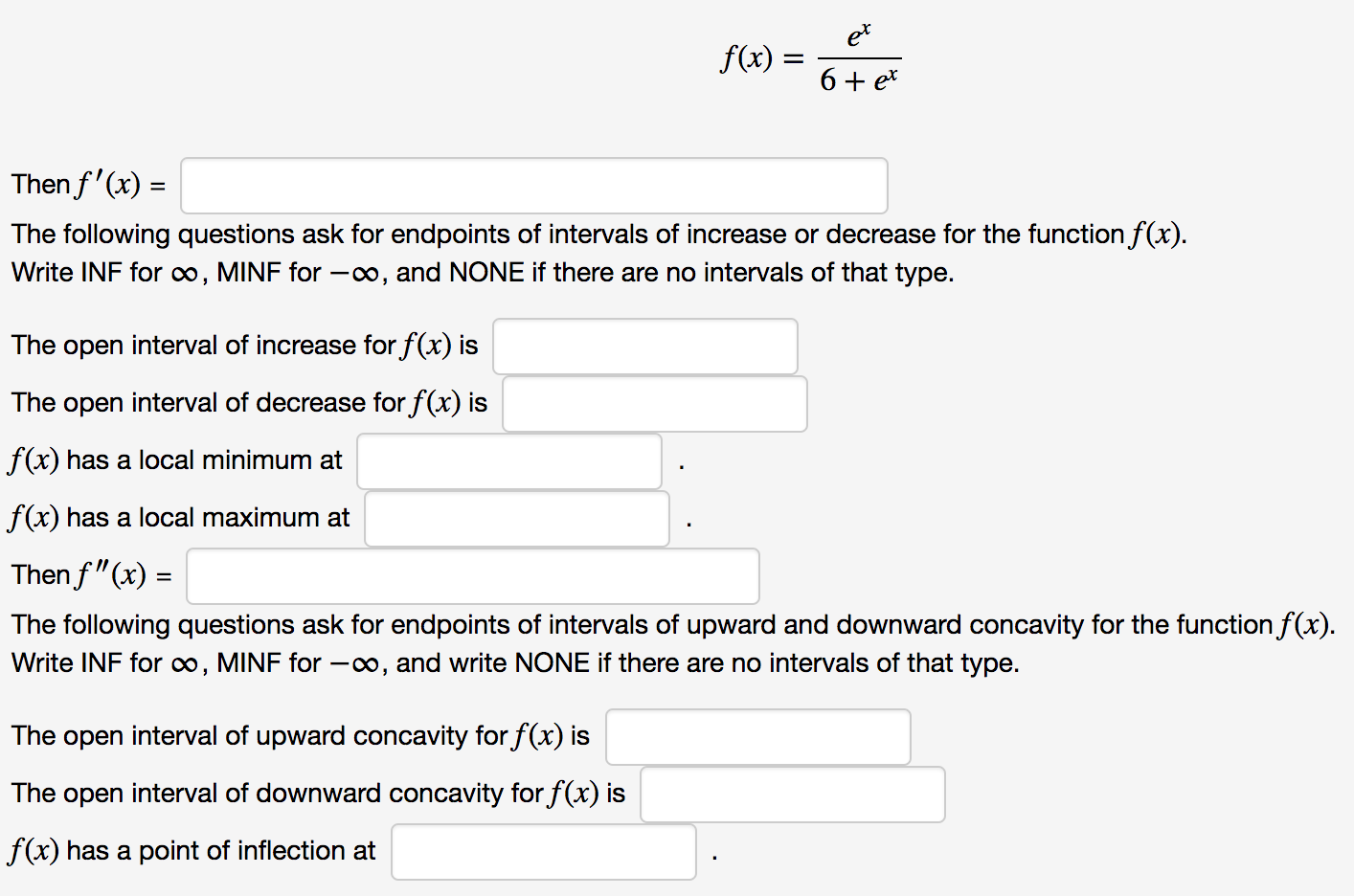Answered step by step
Verified Expert Solution
Question
1 Approved Answer
Question: Consider the function, f(x)= (e^x)/(6+e^x) x = 6+e Then f '(x) = The following questions ask for endpoints of intervals of increase or decrease
Question:
Consider the function, f(x)= (e^x)/(6+e^x)

Step by Step Solution
There are 3 Steps involved in it
Step: 1

Get Instant Access to Expert-Tailored Solutions
See step-by-step solutions with expert insights and AI powered tools for academic success
Step: 2

Step: 3

Ace Your Homework with AI
Get the answers you need in no time with our AI-driven, step-by-step assistance
Get Started


